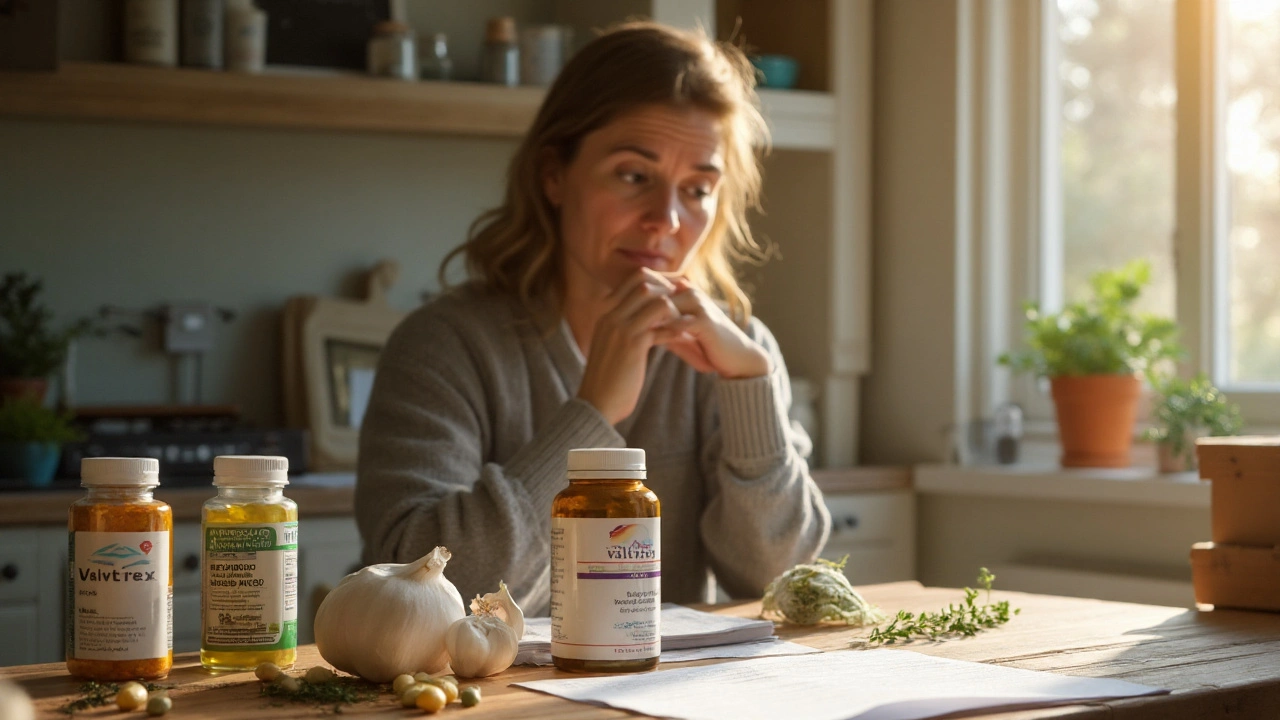Herpes Supplements: Natural Options & What Works
If you’ve been dealing with cold sores or genital herpes, you probably know the frustration of recurring outbreaks. Prescription antivirals like Valtrex help a lot, but many people also try supplements hoping for extra support. Below we’ll break down why supplements are popular, which ones have real evidence behind them, and how to use them safely.
Why People Look for Supplements
First off, supplements feel easy to add to a daily routine – just a pill or powder with breakfast. They’re also marketed as “natural,” so folks think they’ll have fewer side effects than prescription drugs. In reality, the body still needs the right nutrients to keep the immune system sharp, and some herbs contain compounds that can directly fight the virus.
Another reason is cost. A month’s supply of Valtrex can add up, especially if you need it long‑term. Over‑the‑counter supplements are usually cheaper per dose, though quality varies a lot. That’s why checking third‑party testing and reading customer feedback matters.
Top Supplements Backed by Research
Lysine: This amino acid is the most talked‑about herpes supplement. Studies show that taking 1,000 mg daily can reduce outbreak frequency and speed up healing. Lysine works by limiting arginine, an amino acid the virus needs to replicate.
Zinc: Zinc lozenges or zinc picolinate tablets (15–30 mg per day) have been linked to shorter outbreaks. Zinc boosts immune function and may directly inhibit viral replication when levels are adequate.
Vitamin C & E: Antioxidant vitamins help protect skin cells from damage during an outbreak. A combo of 500 mg vitamin C with 400 IU vitamin E taken daily can improve healing time, according to a few small trials.
Propolis: This bee‑derived resin has antiviral properties. Topical propolis creams applied at the first sign of a sore have been reported to lessen pain and speed up resolution in some users.
Plant Extracts (Echinacea, Garlic, Green Tea): These contain polyphenols that support immunity. While evidence is mixed, many people find them helpful as part of a broader supplement stack.
When you combine supplements, keep the total lysine‑to‑arginine ratio in mind – aim for at least 3:1 in your diet to give lysine an edge.
Safety tip: High doses of lysine (>3 g per day) can cause stomach upset. Zinc above 40 mg daily may interfere with copper absorption, so consider a multivitamin that balances both minerals.
Finally, remember that supplements are not a cure. They work best alongside prescribed antivirals, good hygiene, and stress management. If you’re unsure about interactions or dosages, chat with a pharmacist or doctor before starting any new product.
Science-Backed Natural Alternatives to Valtrex for Herpes Relief
- Medications
- 23


